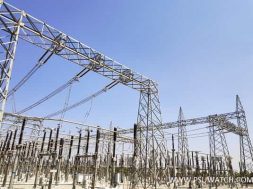
BANGKOK, THAILAND: The United Nations Economic and Social Commission for Asia and the Pacific (ESCAP), Asian Development Bank (ADB), and United Nations Development Programme (UNDP) jointly launched today the latest edition of the Asia-Pacific SDG Partnership Report – Fast-Tracking the Sustainable Development Goals: Driving Asia-Pacific Transformations on the sidelines of the 7th Asia-Pacific Forum on Sustainable Development (APFSD).
The APFSD concluded today with a call for countries to revive international cooperation and multi-stakeholder partnerships in tackling the huge socioeconomic impacts of the novel coronavirus disease (COVID-19) pandemic, which threaten to reverse hard-won development gains in the region. Participants also expressed concerns on the limited progress made toward achieving the Sustainable Development Goals (SDGs) and underscored the need for transformative accelerated action by all stakeholders to meet the targets by 2030.
More than 730 delegates representing governments, civil society, businesses and international organizations took part in the Forum hosted virtually by ESCAP.
The report highlights strategies to accelerate transformation and helps countries compare their speed of progress with others. It calls for clear direction, removing systemic barriers, investing in institutional and public readiness to change, and upgrading policymaking approaches to manage increasingly complex development challenges.
One of the report’s key findings is that higher income is not a silver bullet to address the challenges posed by the SDGs and achieve accelerated progress along transformative pathways. Low-income and lower middle-income countries emerged as some of the fastest-moving countries in the region.
“Resilience must be central to our strategies and interventions. Shocks such as the COVID-19 pandemic do not respect borders, so the pathway to saving lives and securing livelihoods lies not in national isolation, but in cooperating across borders on information sharing, capacity building, and policy coordination,” said ADB Vice-President for Knowledge Management and Sustainable Development Bambang Susantono. “We must use the SDGs and Paris agreement as the guiding frameworks for our long-term recovery efforts, and do what it takes to prioritize their attainment.”
Since 2014, the APFSD has provided a unique annual platform for countries in Asia and the Pacific to share perspectives, challenges and best practices as they progress toward implementing the SDGs. Outcomes from APFSD will provide input into the global discussions held at the United Nations High Level Political Forum on Sustainable Development in July this year.
ADB is committed to achieving a prosperous, inclusive, resilient, and sustainable Asia and the Pacific, while sustaining its efforts to eradicate extreme poverty. Established in 1966, it is owned by 68 members—49 from the region.














